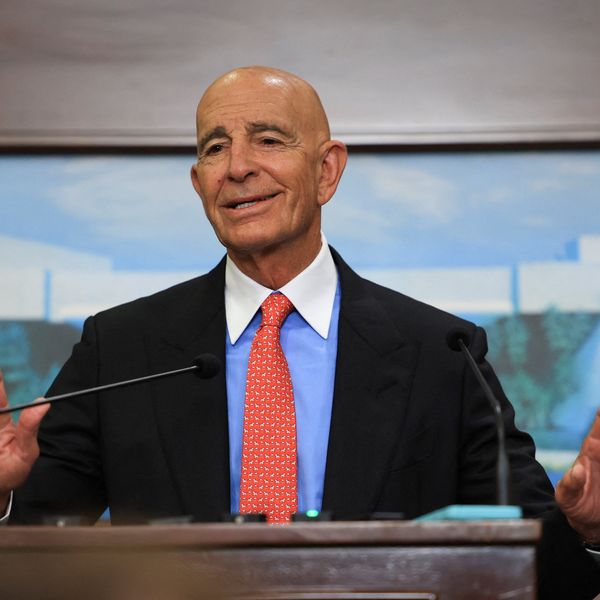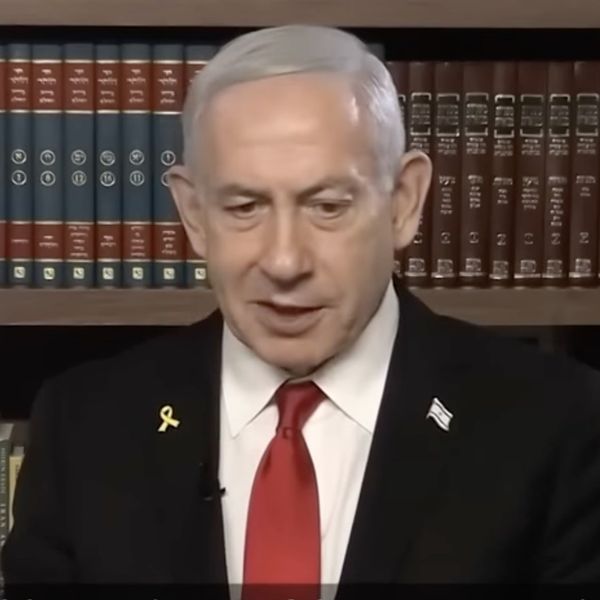President Biden has taken a lot of heat from lawmakers in his own party for not being tough enough on Israel for its violence in Gaza and in East Jerusalem this month. Interestingly, my old boss President Ronald Reagan could not be accused of the same, and actually set a precedent for holding Tel Aviv to task, without breaking the special bond between the United States and Israel. It can be done.
President Biden certainly deserves credit for the role he and his administration played in getting Israeli Prime Minister Benjamin Netanyahu to accept the Egyptian-brokered deal that led to a ceasefire in the 11-day war between Israel and Hamas. That violence was responsible for killing at least 250 Palestinians, including 63 children, and 12 Israelis, including two children, and injured tens of thousands of people primarily in Gaza. However, by blocking the draft UN Security Council statement that called for an immediate ceasefire between Israel and Hamas, and refusing to back legislation sponsored by some 28 Democratic senators to block a $735 million package of precision-guided weapons to Israel, Biden risks undermining the role Washington can play in enhancing long-term prospects for peace in the region.
While it is impossible to know exactly why Biden has taken these two steps, he is no doubt wary of the tremendous criticism he would get from most Republicans, some members of his own party, and the pro-Israel lobby, if he were to have done things any other way. He no doubt remembers the criticism that President Obama received from these three groups in 2016 when he failed to veto a UN resolution that demanded that Israel halt Jewish settlements in all Palestinian territories, including East Jerusalem, occupied since 1967.
In fact, Obama was much more willing to veto UN resolutions condemning Israeli violence than the Republican presidents who preceded him, including Reagan and the two Bushes. President Reagan, for whom I had the honor of serving for four and a half years, actually allowed 21 UN resolutions that directly or indirectly condemned Israeli behavior and actions to pass. These included condemning Israel for the bombing of Lebanon, Iraq, and Tunisia. George H.W. Bush allowed nine UN resolutions, including one that criticized Israel for deporting Palestinians that it perceived as anti-Israel to pass, while George W. Bush allowed six more, including one that called on Israel to stop demolishing the houses of Palestinian civilians. Obama allowed only one UN resolution against the expansion of the settlements to pass before leaving office in December 2016.
In addition to not vetoing UN resolutions, Reagan took several actions that many in Israel and the United States perceived as anti-Israel. For example, on June 7, 1981, less than six months after Reagan took office, Israel launched a surprise bombing raid on the Iraqi nuclear reactor at Osirak, and, in so doing, violated the airspace of Saudi Arabia and Jordan. Reagan not only supported UNSC Resolution 487, which condemned the attack, but he also criticized the raid publicly and suspended the delivery of advanced F-16 fighter jets to Israel. Moreover, over the strident objections of Israel and the pro-Israel U.S. lobby groups, Reagan approved the sale of advanced reconnaissance aircraft (AWACS ) to Saudi Arabia, which Israel then viewed as a hostile state.
A year later, in August 1982, when Israeli forces advanced beyond southern Lebanon and began shelling the Palestinian Liberation Organization (PLO) in Beirut, Reagan responded with an angry call to Israeli Prime Minister Menachem Begin, demanding a halt to the operation.
In addition, during the Israeli invasion of Lebanon, Reagan intervened directly when Israel threatened to blow up the Commodore Hotel in downtown Beirut, which housed more than 100 western reporters. As David Ottaway, who was then the Washington Post Middle East correspondent and was in the building, pointed out, the Israeli defense minister did not like the media coverage the invasion was getting and wanted to close down the media center.
Biden, on the other hand, even though he had an hour’s notice, failed to intervene to stop Netanyahu from bombing and collapsing the 12-story building that housed the offices of Al Jazeera and the Associated Press in Gaza during the recent bombing campaign. He also failed to publicly condemn the attack, let alone challenge Israel’s contention that the building sheltered Hamas military intelligence assets, despite AP’s insistence that its staff had no evidence that such assets were or ever had been present.
In addition to allowing the UN resolutions to pass and suspending the F-16 delivery, Reagan also restricted aid and military assistance to Israel to help force its withdrawal of troops from Beirut and central Lebanon.
Therefore, if in the future some members of the Biden administration or Congress want to join the international community in condemning Israel’s behavior, or in conditioning U.S. assistance or arms transfers and face resistance from Republicans, they need only point to the precedents established by President Reagan in the first instance.














